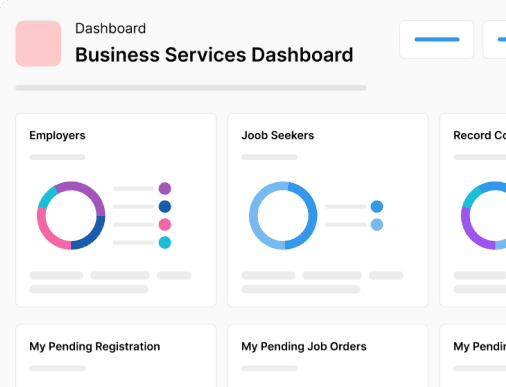Tracking Client Progress After Graduation: The Key to Continuous Career Support
For career services programs, the journey doesn’t end once a client secures a job. Post-graduation support is essential for ensuring long-term success. By tracking alumni engagement and maintaining consistent support, career services can provide lasting value to both alumni and employers. Ongoing support not only helps alumni continue to grow in their careers, but also strengthens program efficacy and builds stronger connections with employers.
In this post, we’ll explore the importance of tracking alumni progress, strategies for offering continuous career support, and the value of creating a vibrant alumni network.
1. Implement a Robust Alumni Tracking System
The foundation of successful post-graduation support is effective tracking of alumni progress. By maintaining detailed records of alumni, career services can ensure that their support continues well after job placement, helping to guide their career advancement.
Best Practices:
Centralized Data Management: Use a CRM or dedicated alumni database to track key data, such as employment status, salary progression, and career advancements. This system facilitates ongoing engagement and offers insights into alumni needs.
Regular Updates: Ensure that alumni information is regularly updated to track their job transitions, promotions, and career shifts, enabling personalized support and guidance.
2. Conduct Regular Check-Ins for Alumni Engagement
While initial job placement is important, ongoing engagement is necessary to ensure that alumni continue to thrive in their careers. Regular check-ins allow career services to provide additional support and resources as alumni encounter new challenges.
Best Practices:
Annual or Semi-Annual Surveys: Conduct surveys or phone check-ins to assess job satisfaction, career goals, and any workplace challenges. This data helps career services adjust their support to meet alumni needs.
Career Milestones: Celebrate alumni achievements by recognizing their promotions, career shifts, or academic advancements. These milestones show alumni that they remain a priority within your career services program.
3. Build a Thriving Alumni Network
Alumni networks are more than just tracking systems—they create a community of support and opportunities. A strong alumni network encourages peer mentorship, provides job leads, and promotes continuous professional development.
Best Practices:
Mentorship Programs: Establish mentorship opportunities where recent graduates are paired with more experienced alumni for career advice and networking.
Online Communities: Create private online platforms (e.g., LinkedIn groups or Slack channels) for alumni to connect, share opportunities, and offer advice. These platforms also allow career services to provide webinars, training materials, and career development resources.
Exclusive Events: Organize workshops, career fairs, or networking events to allow alumni to stay engaged, build connections, and enhance their skills.
4. Leverage Employer Partnerships for Continued Growth
Employers play an integral role in the continued success of alumni. By collaborating with employers, career services can ensure ongoing support for alumni while also strengthening their relationships with key industry partners.
Best Practices:
Employer Feedback: Regularly engage employers to gather insights on alumni performance and track any training needs. Use this feedback to improve post-placement support and identify skills gaps.
Collaborative Events: Host career fairs, workshops, and networking events in partnership with employers. These events offer alumni opportunities to connect directly with industry leaders and enhance their professional growth.
Workplace Support: Collaborate with employers to offer on-the-job training, coaching, and career growth programs that help alumni adapt to their roles and advance within their companies.
5. Utilize Data-Driven Analysis for Continuous Improvement
Effective post-graduation tracking relies on data-driven insights. By collecting and analyzing post-placement data, career services can continuously refine their programs and ensure long-term success for alumni.
Best Practices:
Track Key Metrics: Monitor metrics such as job satisfaction, career progression, and retention rates to measure the effectiveness of your support and identify areas for improvement.
Regular Surveys: Survey alumni regularly to gather insights into their career satisfaction, challenges, and future career goals. This data helps you fine-tune your services.
Real-Time Dashboards: Use data dashboards to track alumni progress and engagement in real time. This provides career services teams with quick, actionable insights for proactive support.
Conclusion
Post-graduation support is an ongoing commitment to alumni success. By implementing effective tracking systems, building a strong alumni network, and leveraging employer partnerships, career services programs can ensure that alumni continue to thrive and grow in their careers. Tracking alumni progress helps not only improve program outcomes but also strengthens relationships with employers and provides valuable data for future program improvement.
By following these best practices, career services can create a dynamic support system that enhances alumni career trajectories, contributes to program success, and maintains strong employer connections.
